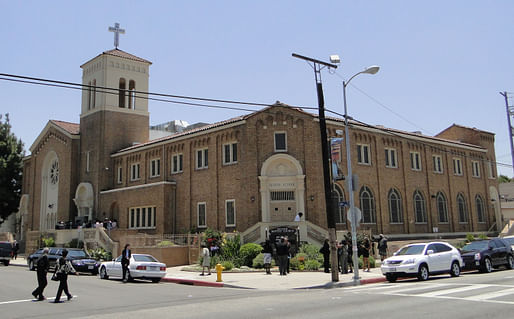

Lawmakers in California are working on a new measure that could grant churches, nursing homes, hospitals, and nonprofit entities the ability to build affordable housing on their properties without needing a change in zoning.
The San Francisco Chronicle reports that the measure, known as SB-899, was introduced this week by California State Senator Scott Wiener, the Bay Area legislator responsible for spearheading the controversial SB-50 proposal that failed earlier this year.
In part, the text of the bill reads, "This bill would require that a housing development project be a use by right upon the request of a nonprofit hospital, nonprofit diagnostic or treatment center, nonprofit rehabilitation facility, nonprofit nursing home, or religious institution that partners with a qualified developer on any land owned in fee simple by the applicant if the development satisfies specified criteria."
Among the stipulations the bill makes are that 100% of the units be "restricted to lower income households." It would allow for the development of both rental and for-sale housing, as long as the rental units remain affordable for at least 55 years and the for-sale properties remain affordable for 45 years.
According to The San Francisco Chronicle, the bill would up-zone properties owned by these entities in order to allow up to 40 units in residential areas and as many as 150 units in commercial and mixed-use zones. The bill would potentially allow churches to develop affordable housing on their parking lots, for example. And could help facilities like nursing homes and hospitals to meet dire senior and affordable housing needs in a faster and more coordinated way. Hospitals around the country are working to bring affordable housing facilities directly to medical facilities in an effort to help provide long-term medical and recovery care for people experiencing homelessness and for senior citizens recovering from medical procedures.
A related bill, AB1851, proposed for the California State Assembly by Buffy Wicks of Oakland would lessen minimum parking requirements for religious properties.
The bills represent a more tactical, piecemeal approach to zoning reform following the catastrophic failure of Wiener's SB50 bill, which would have up-zoned all properties in proximity of high-frequency transit across the state. The measure proved to be too controversial for politicians across the state and failed for the second time in January of this year.
No Comments
Block this user
Are you sure you want to block this user and hide all related comments throughout the site?
Archinect
This is your first comment on Archinect. Your comment will be visible once approved.